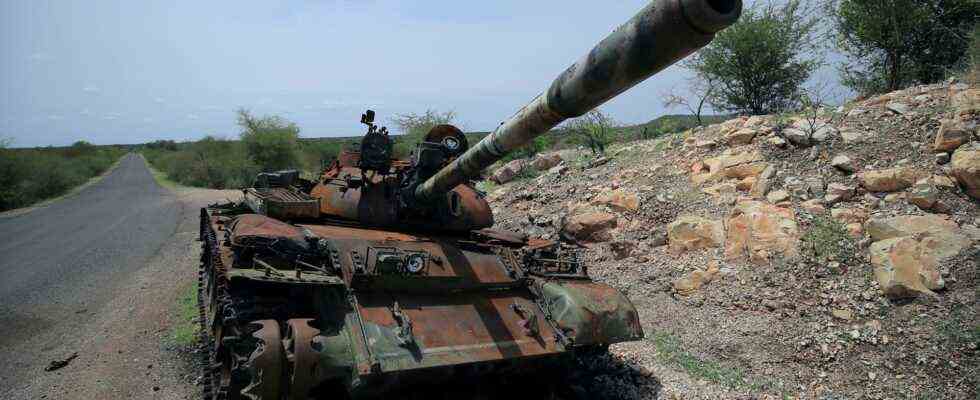Status: 03.07.2021 1:24 a.m.
Ethiopia’s government had announced a ceasefire. The UN also calls on the insurgents in Tigray to do so. Because it is urgently necessary to bring relief supplies to the crisis region. According to the UN, hundreds of thousands are at risk of starvation.
The number of people facing starvation in the Ethiopian crisis region of Tigray has increased further despite a unilateral ceasefire. “It is estimated that more than 400,000 people have crossed the famine threshold and another 1.8 million people are on the verge of famine,” said the acting head of the UN Emergency Relief Office Ocha, Ramesh Rajasingham, at a special meeting of the United Security Council Nations in New York. Other data even assumed that even more people were starving.
Appeal to the insurgents
The conflict between the government and local rebels in Tigray escalated in November. The Ethiopian government had launched a military offensive against the Tigray People’s Liberation Front (TPLF), which had been in power in the region of the same name up to that point.
Hundreds of thousands had to flee because of the conflict, which became more and more complex and also includes armed forces from neighboring Eritrea. On Monday evening, the Ethiopian government surprisingly announced a unilateral ceasefire – the regional capital Mekele has since been under the control of the rebels.
The security situation is just one of many problems
The United Nations called on the insurgents to recognize the government-declared ceasefire. “A ceasefire adhered to by all parties would not only facilitate the provision of humanitarian aid, but would also be a starting point for the necessary political efforts to find a way out of the crisis,” said UN Deputy Secretary-General Rosemary DiCarlo at the UN meeting -Security Council.
All parties to the conflict must also ensure the provision of humanitarian aid, emphasized DiCarlo. Access for aid organizations has been hampered for months by the security situation, bureaucratic hurdles and a lack of electricity, internet and telephone connections. Most recently, an important humanitarian access bridge to Tigray was destroyed.
The bridge over the Tekeze River in the Tigray region has been destroyed. This makes it even more difficult to bring relief supplies to the region.
Image: dpa
Some states see conflict as an “internal matter”
The meeting of the Security Council had been requested by the USA, Ireland and Great Britain. It was the first public meeting of the panel since November. Previously, several African member states had resisted, which see the conflict in Tigray as an internal issue for Ethiopia. Permanent Security Council members China and Russia also share this view.

